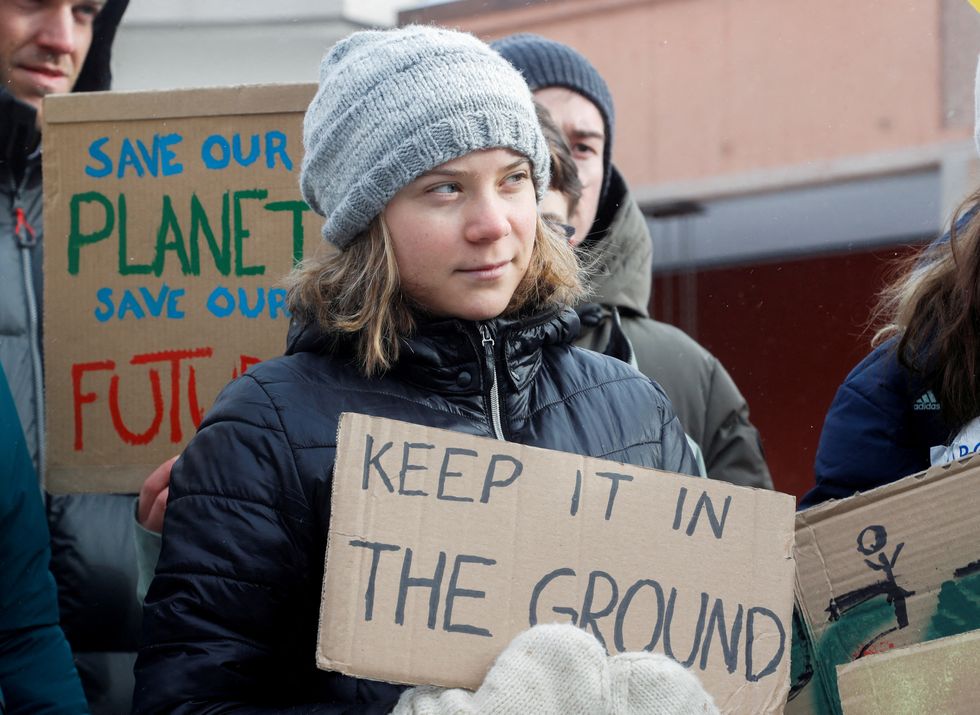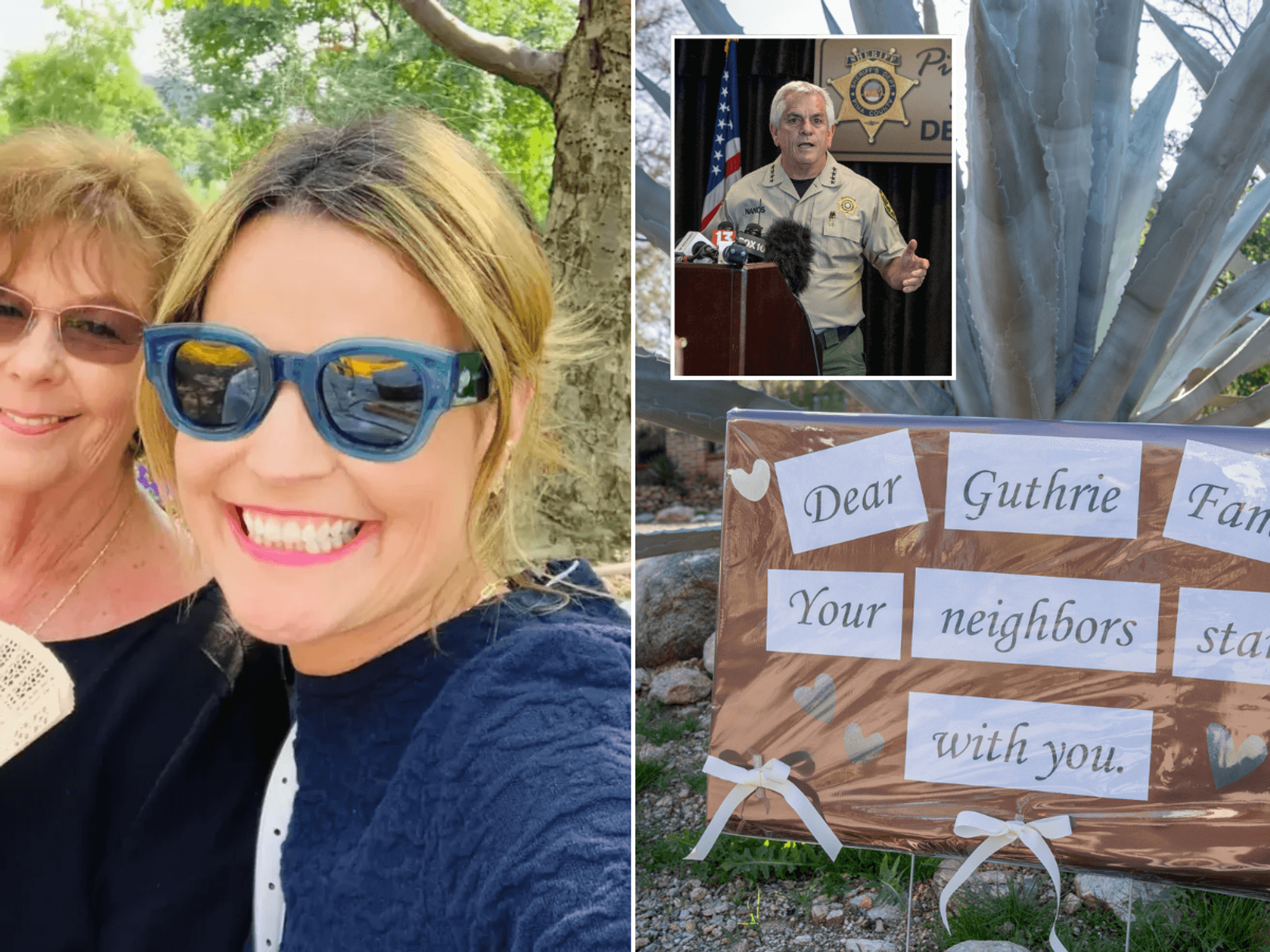I've been to the front line of Earth's global boiling crisis, says Laurence Fox

Laurence Fox has spoken about his experience on the front line of the Earth's global boiling crisis
|GB NEWS

By Laurence Fox
Published: 16/08/2023
- 19:24Every year for the past 35 years when the summer holidays come round, lots of my family head to the Greek island of Skiathos...
Don't Miss
Most Read
Latest
Every year for the past 35 years when the summer holidays come round, lots of my family head to the Greek island of Skiathos. Over the years I have watched toddlers become adults, adults become grandparents, and grandparents no longer around to slowly rake up their little bit of the beach, keeping it tidy and beautiful.
It’s not easy to describe what is so magical about this place, but I suppose it’s charm is that where other Greek islands became party hotspots, Skiathos failed dismally. Everything about this place lacks pretension, down to the slightly rusty deckchair I plonk myself on for a few weeks each year to read and watch the kids waterski. A luxury I cannot afford this year, owing to my neck operation.
However, little did I know as I packed my old beach shorts this year, Instead of going in summer holiday, I would be making my way to the front line of the planet's inevitable destruction thanks to the global boiling.
I have to confess, I feel a bit let down so far. It’s exactly the same as last year and the 35 before it, give or take. Perhaps the fact that nothing has changed is in itself a sign of the greatly anticipated and reported boiling, and this is perfectly normal summer, is mother nature's cruel way of lulling the kids and I into a false sense of security.
WATCH LAURENCE GIVE HIS THOUGHTS BELOW
This is not to say that extreme weather events don’t happen, even here in sleepy Skiathos. The rolling hills still bear the scars of the great fire of 2007 (I think it was.) The first we knew something was up was the roar of a giant plane as it came to scoop a belly full of water from the bay in front of us, only to rise and sweep right back to the deserted hills behind.
We turned and saw the smoke rising in the distance and the faint sirens of the Skiathos fire department whirring up. The fire spread rapidly and it was not long before we could see flames hundreds of feet high not far away. Then came the heat. Many took to the sea for relief.
My dad returned to the villa packed some emergency supplies and prepped the cars for a swift departure. To where? No one really knew. We were, after all, stuck on an island. His protective behaviour perhaps indicative of the toxic masculinity one reads so often about.
The fire raged in the lesser populated centre and east of the island and thanks to the amazing work of the skiathos firemen and others one can imagine were flown in at short notice, within a day or so most of the flames were gone.
I look now over to my right and I can see the smaller trees which replaced the ones destroyed by fire. The next year I drove through the devastation and what now looked like a nuclear winter, over to the west of the island to see the damage.
It was awe inspiring, not in a good way. How anyone or anything survived god only knows.
 Greta Thunberg | Reuters
Greta Thunberg | ReutersThe strange thing is that not once, at any point did anyone mention the great global boiling, where any and every fire is blamed on the fury of the sun god with his people. Skiathos is a practical place, and getting things back to normal was what mattered.
The locals said that fires like these had happened for centuries, and there was even heretical talk of them being part of natures cycle to renew the land. Language which would place you very firmly in the climate gulag these days.
The voracious hectoring over this great global boiling has filled every column inch available for months as rain drenches Great Britain, gifting its people yet another classic let down of a British summer. Places like skiathos benefit from this, as those Brits fortunate enough to afford to do so, seek out warm
And sunny places to rest, read and reset after a long year. Skiathos just plods along. Kids grow older, paint peels off the walls of slightly shabby villas, and life goes on slowly. Always slowly.
Putting aside the fact that not a single predicted climate catastrophe has yet unfolded, there seems to be much more scepticism than usual, from all sensible sides of the political spectrum, about this new impending disaster.
Whether that is because of the untruths and fear mongering over covid and the hypocritical refusal of the elite class to obey their own draconian rules, imposed so cruelly on the plebs, one can only speculate.
But there is a sense that the gap in trust between the peasants and the political class has widened significantly.
The support shown for the “Blade runners” who stalk London at night to remove Sadiq khans climate tax cameras, for example, show us that there is an anger bubbling under the surface.
Anger that their lives are ever more controlled by a mayor who sees himself more as a medieval King, who can demand taxes at will, for whatever reasons he wishes. One hopes he is dealt a fatal blow in next years election.
We must not fall into the classic climate cultists trap, that is to agree that mankind is the reason for any change in climate. We should reject this assertion. And the Al Gores and John - “I don’t own a private jet” - Kerrys and Greta - “The only way to solve the climate crisis, is to save the banks” - Thunbergs.
Like all cult leaders who have to pick a new day for the world to end, every time their predicted day of doom passes.
Polling reveals that 75 per cent of Britons believe there is a climate emergency, and yet the same figure, 75 per cent don’t feel that paying more tax will solve it. This implies to me that one must nod along with the climate catastrophists as part of polite dinner table conversation, but deep down they know it’s not the Armageddon being peddled in the media. A lie told often enough, as the saying goes, eventually becomes the truth.
We should agree with them on one thing and one thing only. That we all want a better future for our children, and scaring them half to death over some confected crisis is the worst possible way to achieve that.










